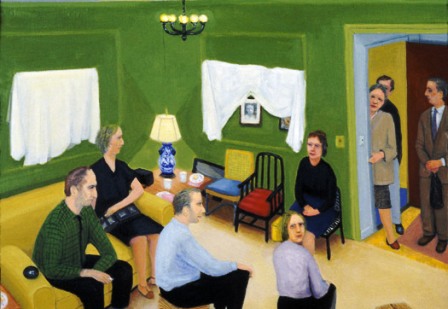When a practicing member of Judaism dies, the first stage of the mourning traditions is Shiva. The word “Shiva” means seven and originates from the beginning of the Torah, when Joseph mourned the loss of his father Jacob for seven days. Therefore, the Shiva process involves a series of rituals that encompass the first seven days after a beloved person’s funeral. These rituals serve as ways for friends and family members to express their support and to occasionally help out with household chores. Food and meals also play an important role, as friends and neighbors provide the “seudat havra’ah”, or the first meal for the bereaved after the funeral, which means “meal of comforting” in Hebrew.
The no bathing rule applies to not washing the whole body at once and to not using any hot water. The only type of bathing must include using cool water and washing different body parts at separate times.
As a sign of grief, the outer garment—a shirt, jacket or vest—that was traditionally torn during the keriah ritual at the funeral is worn throughout the Shiva. Out of respect for the departed, those sitting Shiva are prohibited from bathing for pleasure, shaving, wearing jewelry or leather shoes, performing marital relations and studying the Torah. The no bathing rule applies to not washing the whole body at once and to not using any hot water. The only type of bathing must include using cool water and washing different body parts at separate times. As for the restriction on studying the Torah, the only religious readings that can be studied during Shiva are laws of mourning. Work is also forbidden for the bereaved to reflect and focus on properly grieving the lost beloved.
The mirror detracts from the Jewish spirit of mourning, which is one of loneliness. It is meant for mourners to reflect in solitude, rather than to focus on the trivialities of social acceptance.
Two of the biggest rituals during Shiva involve mirrors and stools. When it comes to mirrors, it is customary for Jewish people to cover the mirrors. Since mirrors are often associated with vanity and how people tend to focus on outward appearances when looking in them, covering them allows mourners to reflect on the importance of their relationships between God, the Creator, and them, the Creatures, as a whole, rather than focusing on their individual looks and how to enhance them to achieve social acceptance. The mirror detracts from the Jewish spirit of mourning, which is one of loneliness. It is meant for the mourners to reflect in solitude, rather than to focus on the trivialities of social acceptance. The simplest reason for why mirrors are covered is because it is forbidden to worship or even stand in front of an image, including mirrors, in Jewish law. The other big ritual has to do with mourners sitting on stools that are low to the ground. The low stools represent the reality for mourners to be “brought low” by loss and grief for the beloved late person.
Overall, the Jewish mourning tradition of Shiva serves as a loving and caring way for friends and neighbors to look after the bereaved by performing mitzvahs (loosely interpreted as “good deeds”), such as visiting them at home, sharing stories of the late beloved and preparing meals so that the bereaved can properly grieve.
Learn more about different cultures and their traditions here.

 The Jewish Mourning Tradition of Shiva
The Jewish Mourning Tradition of Shiva




 John Mulaney’s “Funeral Planning” on Netflix: No Real Plan
John Mulaney’s “Funeral Planning” on Netflix: No Real Plan

 Composting Bodies Is Now Legal in a Dozen States
Composting Bodies Is Now Legal in a Dozen States














